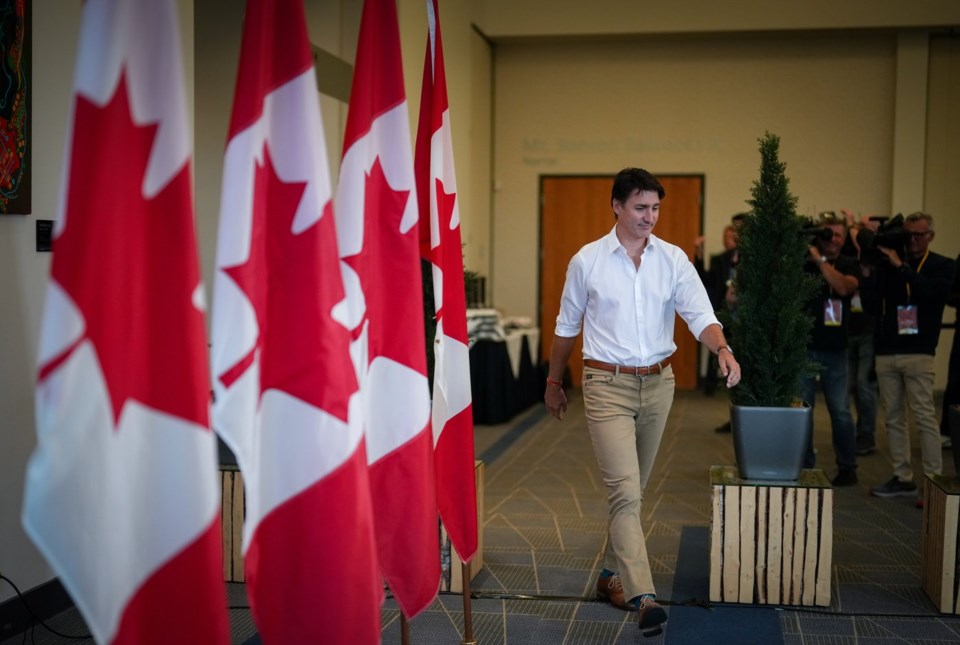OTTAWA — Prime Minister Justin Trudeau and members of his inner circle are slated to return to a federal inquiry into foreign interference in coming weeks.
A newly published provisional witness list for the next phase of the inquiry's public work indicates senior government bureaucrats and members of national security agencies will also testify.
Trudeau and key government officials took part in the commission's initial hearings earlier this year on allegations of foreign interference in the 2019 and 2021 federal elections.
Commissioner Marie-Josée Hogue's interim report, released in early May, said foreign meddling by China did not affect the overall results of the two general elections.
The report said while outcomes in a small number of ridings may have been affected by interference, this cannot be said with certainty.
In the second part of the commission's factual phase, public hearings set to begin Monday will focus on the capacity of federal agencies to detect, deter and counter foreign meddling.
The hearings, scheduled to continue through Oct. 16, will be relatively broad in scope, examining democratic institutions and the experiences of diaspora communities.
Beginning Oct. 21, the commission will then hold a week of policy consultations, including a series of roundtable discussions featuring experts, to help Hogue develop recommendations.
Her final report is due by the end of the year.
Elections Canada has already suggested possible changes to protect the political nomination process from foreign meddling, including barring non-citizens from helping choose candidates and requiring parties to publish contest rules.
Representatives of the federal elections agency are likely to discuss the proposals at the inquiry's coming hearings.
Hogue's efforts will also be informed by the work of several other bodies, including two spy watchdogs.
In a late May report, the National Security and Intelligence Review Agency said Canada's spy service and Public Safety Canada lacked a system for tracking who received and read specific intelligence on foreign interference, creating "unacceptable gaps in accountability."
The following month, the National Security and Intelligence Committee of Parliamentarians raised eyebrows with a public version of a classified report that said some parliamentarians were "semi-witting or witting" participants in the efforts of foreign states to meddle in Canadian politics.
The blunt findings prompted a flurry of concern that members knowingly involved in interference might still be active in politics.
There is also renewed concern about covert foreign efforts to encourage the spread of tailored narratives from abroad.
A U.S. indictment filed last week charged two employees of RT, a Russian state-controlled media outlet, over purportedly using social media personalities to distribute content with Russian government messaging.
Details pointed to the alleged involvement of Tenet Media, founded by Canadian conservative commentator Lauren Chen and her husband Liam Donovan.
Liberal members of the House of Commons public safety and national security committee recently called for an emergency meeting on the matter.
"This situation calls for an immediate and forceful response to safeguard the integrity of our democracy," the letter says.
This report by The Canadian Press was first published Sept. 11, 2024.
Jim Bronskill, The Canadian Press



